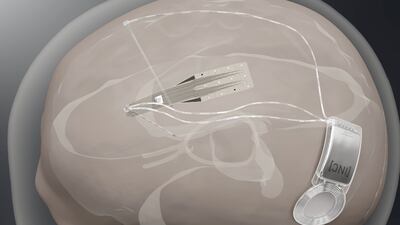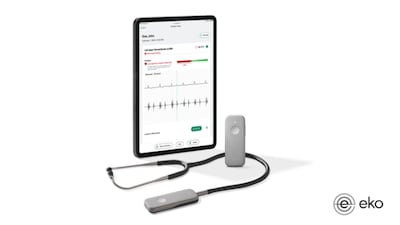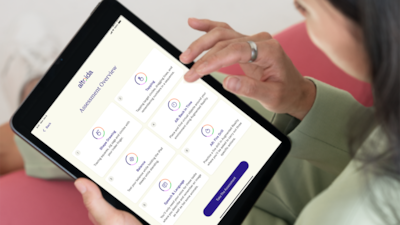
AI

Octave Bioscience’s CEO Doug Biehn sat down with Medtech Insight at HTLH to talk about the company’s plans for expanding their multivariate biomarker blood test for MS analysis and development of a diagnostic for Parkinson’s disease.

IMU Biosciences joins a UK consortium of 27 academic and industry partners to undertake “immunoprofiling” of 6,000 cancer patients to assess their response to treatment.

In this week’s Digital Health Roundup, Medtech Insight’s Marion Webb talks about her interview with GE HealthCare’s chief AI officer Parminder Bhatia about his vision for AI in health care and other highlights from HLTH. Natasha Barrow discusses her interview with Owkin on the EU AI Act and highlights Click Therapeutics’ latest clinical results.

A step-wise process is needed to improve UK diagnostic services, says a report authored by the Institute of Biomedical Science and PA Consulting. There are implications for industry in its recommendations.

This week, HistoSonics announced it will bring its ultrasound system for destroying liver tumors into VA hospitals, Edwards Lifesciences reports encouraging TRISCEND II trial results at TCT, study finds blood test for CRC screening are less cost-effective than alternatives, and more.
Medtech Insight talked with GE HealthCare’s chief AI officer Parminder “Parry” Bhatia at HLTH about the firm’s new CareIntellect for Oncology offering to help clinicians make efficient use of multimodal patient data, his vision for projects within AI Innovation Lab, and the future of AI in health care.
At HLTH 2024, GE HealthCare unveiled CareIntellect for Oncology, a generative AI-driven platform to help oncologists quickly assess patient data across multiple sources to save time and improve treatment planning. The platform, currently in evaluation at two US hospitals, is set for launch in the second half of 2025.

This week, Medtronic and Hologic announced major safety issues; the US government awarded $110m to innovators in women’s health; CDC partnered with Quest on a bird flu diagnostic; and more.

The co-founder of Pure Global discusses the regulatory consultancy's use of AI to support clients’ marketing submissions and other needs, as well as the AI-enabled medtech landscape and opportunities in China and Southeast Asia for accessing patient data for AI development purposes.

‘Unicorn’ Startup Owkin On EU’s AI Act, Funding Needs: ‘Europe Doesn’t Want To Be Under-Competitive’
The EU Artificial Intelligence Act, the first official AI regulation globally, entered into force on 1 August 2024. Two months on, Medtech Insight sits down with AI diagnostic startup Owkin’s chief diagnostic officer Meriem Sefta, and senior vice president of public affairs and impact Yedidia Levy-Zauberman, to discuss how the company is adapting to the EU AI Act, the opportunity it presents, and what is needed next for AI deployment in the EU.

Deloitte Center for Health Solutions surveyed 85 leaders from medtech organizations for its report, “Is Generative AI changing the game for medtech?” Respondents replied overwhelmingly “yes,” while acknowledging the industry thus far has only scratched the surface of AI’s potential.

Venture capital investment in healthtech is showing signs of early recovery in the first half of 2024 after the long hangover of a downturn that followed booming investments during the pandemic years, according to a new report from Silicon Valley Bank (SVB). Despite ongoing challenges, healthtech is on a positive trajectory and hovers between $3.5bn and $4.5bn per quarter, surpassing pre-pandemic levels.

Start-ups pitched a diverse deck of innovative technologies to three judges and an audience of potential investors, strategics and physicians at the Octane Medical Innovation Forum in Irvine, CA. Highlights include neuromodulation company Sinaptica Therapeutics, which won the competition for both “People’s Choice” and “Judge’s Choice.”

The Octane Medical Innovation Forum brought together industry experts, entrepreneurs and investors to discuss a range of topics. Medtech Insight was on the ground to bring some memorable perspectives from industry leaders.

This week, Establishment Labs Holdings announced the FDA gave it premarket approval for Motiva breast implant, Cologuard lands FDA approval for Cologuard Plus and GE HealthCare gets FDA nod for a new imaging agent. The FDA announces another expansion for TAP into ophthalmology and radiology. The AAMI and CTA will join forces to develop standards for AI and ML-enabled health care products.

Spain-based Inbrain Neuroelectronics plans first-in-human study to show safety of its graphene-based technology in direct contact with human brain while also developing a second interface for treating Parkinson’s disease.

The results from a trio of studies show that AI-powered digital stethoscopes are effective at identifying patients at elevated risk of experiencing heart attacks and other major cardiac adverse events, according to Eko Health, whose technology was used to screen the participants in the studies.

Altoida CEO Mark Jones has high hopes that the company’s digital assessment tool will be approved by the FDA to be used along with blood biomarker testing by primary care doctors to help predict Alzheimer’s disease before patients show symptoms.

Altoida CEO Marc Jones spoke with Medtech Insight about the company’s investigational digital screening tool for Alzheimer’s and the dire need for better, more accessible precision neurology diagnostics as the global population ages, neurologist shortages worsen, and groundbreaking Alzheimer’s drugs change the treatment paradigm.

The companies intend to co-market Siemens Healthineers’ Multitom Rax as part of Medtronic’s AiBLE ecosystem, which combines advanced technologies in navigation, robotics, imaging, data analytics, and AI to enhance the precision and predictability of spine and cranial surgeries.